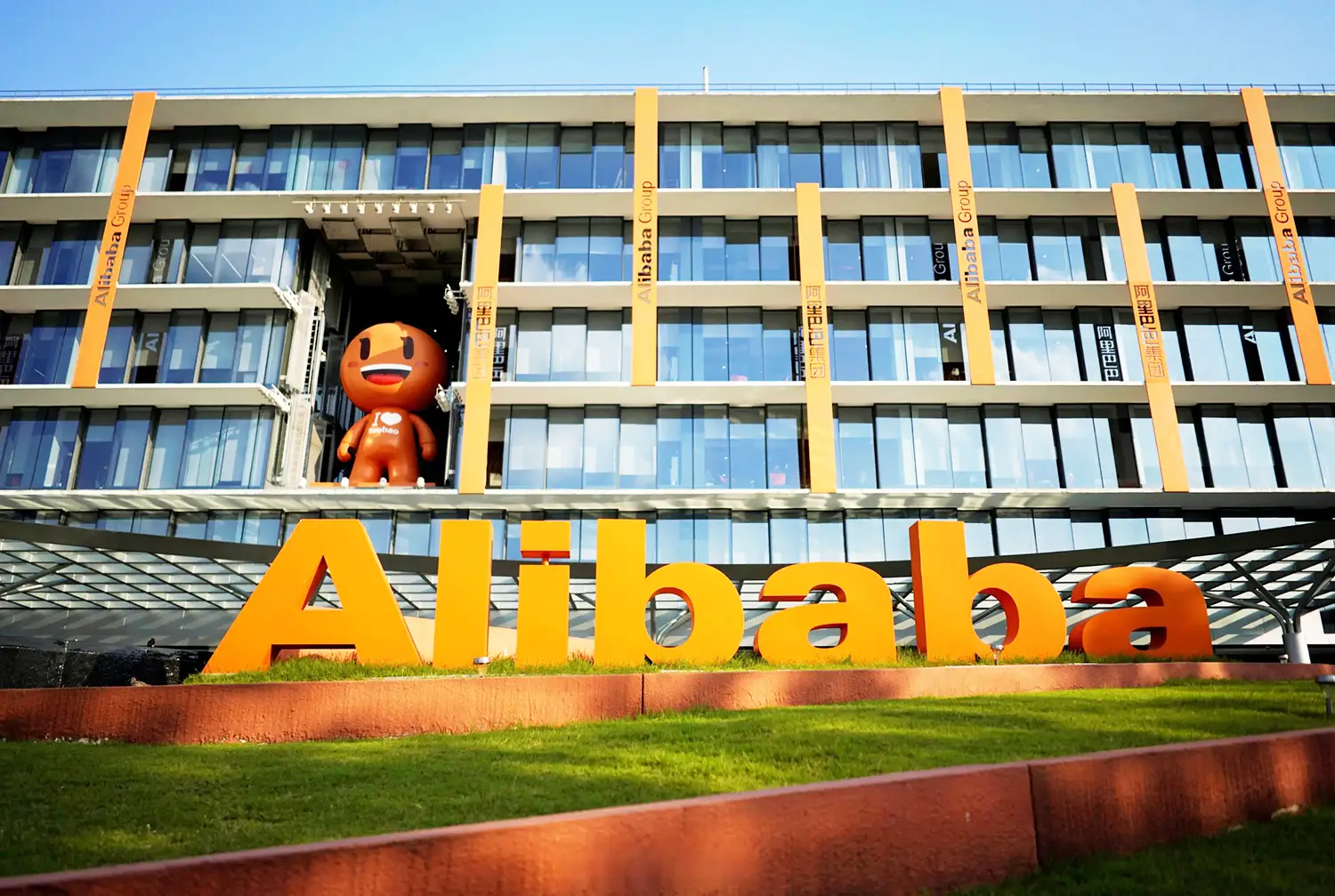Bloomberg:
We really went into the AI side of the equation with Peter Elstrom earlier, but I want to understand more about the e-commerce side that we all know from Alibaba. How has that performed for the Chinese domestic audience?
Jacob Cooke:
There are definitely some bright spots in this report. We were expecting reasonably good news after the last 6.18 festival, the second largest shopping event, which was up about 15%.
Looking at the company’s overall revenue, even after accounting for divestments such as the Turkish e-commerce platform and other retail sell-offs, their total revenue was up 10%. That is the kind of good news investors are focusing on, which explains why the stock is up so much despite the broader uncertainty.
Bloomberg:
Yes, the miss seems to have been completely digested, given that the stock is up more than 11 percent today. Jacob, what is your read on consumer sentiment and the appetite for e-commerce? Many would say it is not great, but perhaps you are seeing something different.
Jacob Cooke:
On the ground, we are still seeing growth. The days of 30% year-over-year increases are behind us, but 15% growth in 2025 on top of the world’s largest e-commerce market is still an excellent result.
Instant commerce is another key trend that deserves attention. Since around April, we have seen strong momentum there, and by our estimates Alibaba now holds up to 50% market share. They are beginning to compete directly with Meituan and others, showing that consumers are shifting spending away from travel platforms.
With the company’s restructuring and return to double-digit growth, their strategies for competing with Pinduoduo look very effective. The core e-commerce business appears solid.
Bloomberg:
How does the flywheel work when you think about adding AI and the investments there into all of Alibaba’s other direct-to-consumer offerings?
Jacob Cooke:
AI is critical, particularly in product recommendations and customer profiling. That is also why instant commerce has become such an important part of the business.
Alibaba’s ecosystem in China is fully integrated. It connects everything from B2C to B2B, along with instant commerce and overnight delivery. They are gathering enormous amounts of data, which gives them an advantage over competitors like Meituan that are more narrowly focused on consumers.
There was also very positive news in the report about their AI model development.
Bloomberg:
Jacob, your company advises global brands on entering markets such as China and Japan. How are international brands accessing a platform like Alibaba right now?
Jacob Cooke:
They are engaging more than ever. Overseas revenue was up roughly 26 or 27%, which reflects the investments Alibaba has made in Singapore. They are selling a lot of e-services to companies and helping move products through their expanding logistics network.
That network is now connecting much of Southeast Asia, allowing brands to use China as a regional hub. Through bonded free trade zones, companies can import products into China and distribute them across the region with greater efficiency.
Alibaba also owns Lazada, one of the largest platforms in Southeast Asia, which strengthens that regional reach. It is an exciting expansion of their overall ecosystem.
Bloomberg:
Speaking of crossborder trade, I want to ask about geopolitics. How has it affected Alibaba’s ability to grow?
Jacob Cooke:
Alibaba has certainly faced challenges, but it is not alone. We saw Tencent’s results a few weeks ago, and everyone seems to be growing. They are getting the computing resources they need, and their data centers are expanding quickly, which has become one of their fastest-growing divisions.
The current geopolitical tensions do not seem to be hurting the numbers. This is not the first time they have faced tariff increases or trade restrictions. They went through the first trade war as well and emerged stronger.
Perhaps growth would be faster without these issues, but it is difficult to see any real damage. The headwinds that were intended to slow Chinese companies down do not appear to be having much impact. In fact, I think we will see some of these restrictions begin to ease because they hurt US companies as much as they were designed to hinder Chinese ones. I expect more opening up through the rest of the year.
Bloomberg:
Your perspective is valuable because you are on the ground. From the US, we see restrictions on companies like Nvidia and AMD, which are now required to give away 15% or face delays in licensing. These firms feel they are losing opportunities. Do you think these limits will persist in the long term?
Jacob Cooke:
No, I do not. Models such as Qwen3 and other domestic AI systems are keeping up internationally. The lack of chips and computing power has not slowed these models down. Tencent recently said they have all the chips they need, and the progress from companies like Huawei and Shanghai Semiconductor has been impressive.
These restrictions are not achieving their intended purpose. Businesses on both sides want them lifted. There is strong appetite for more cooperation and trade.
Bloomberg:
Do Chinese companies even want the chips at this point? How far have they developed out of necessity in the past two years?
Jacob Cooke:
That is a very good question. We will see how much progress has been made soon. Nvidia’s performance today suggests the market is uneasy about the situation. Hopefully those doors open again soon so they can access the market while there is still demand at those price points, especially as Chinese alternatives continue to advance.





